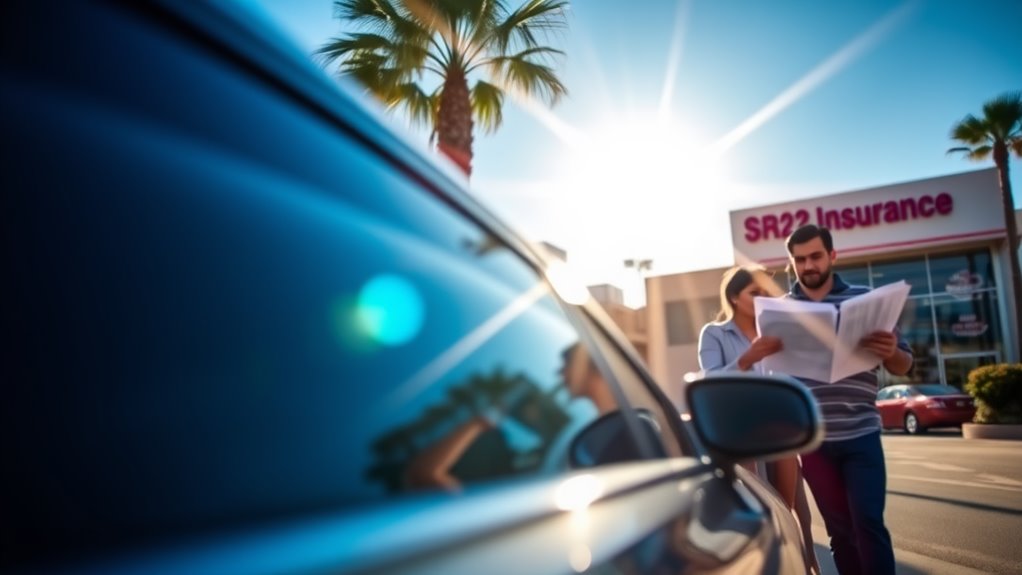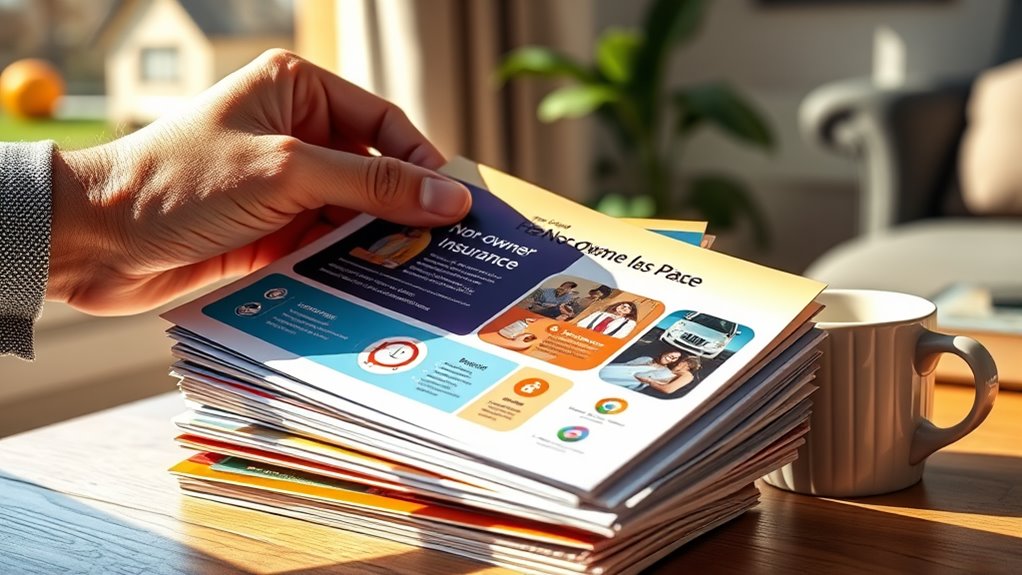What Are Common Misconceptions About SR22 Insurance?
Many people don't realize that SR22 insurance isn't actually a type of insurance policy but rather a certificate that demonstrates financial responsibility. You might think only those with DUIs need it, but various traffic violations can trigger the requirement. Plus, it's a common misconception that obtaining an SR22 automatically reinstates your license, which it doesn't. Understanding these nuances can greatly impact your approach to driving and insurance. What else is often misunderstood about SR22?
Have you ever wondered what SR22 insurance really entails? Many people mistakenly believe that SR22 is a standalone insurance policy. In reality, it's a certificate of financial responsibility that proves you're meeting your state's minimum insurance requirements. This means that if you need an SR22, it's not a new policy you're purchasing; it's an endorsement filed with your existing auto insurance. Understanding this distinction is essential for anyone facing the possibility of needing SR22. Additionally, affordable SR-22 insurance options can also be available for those who qualify as non-owners.
SR22 is not a standalone policy; it's a certificate proving you meet your state's minimum insurance requirements.
Another common misconception is that only drivers with DUI or DWI convictions require SR22 insurance. While it's true that these offenses can trigger the need for an SR22, various other violations can lead to the same requirement. High-risk drivers, those who accumulate too many points on their records, or even those facing license suspensions may also find themselves needing this certificate.
Furthermore, it's a common error to think you won't need an SR22 if you don't own a vehicle. In fact, non-owners can also require an SR22, as the certificate is tied to your driving record, not necessarily vehicle ownership.
When it comes to the requirements surrounding SR22 insurance, many believe that obtaining one automatically reinstates a driver's license. This isn't accurate; the SR22 is part of a broader process that often involves court orders and fines. You must still adhere to specific legal steps to regain your driving privileges.
Additionally, not every insurance company files SR22s, so it's important to confirm that your insurer can handle this requirement. The SR22 often mandates a higher level of insurance coverage, further emphasizing the need for a clear understanding of these obligations.
Cost is another area ripe with misconceptions. Many assume that SR22 insurance comes with exorbitant rates. While it can be more expensive than standard policies, the actual costs depend on various factors, including your age, driving history, and the insurer's risk assessment models. Maintaining compliance with SR-22 requirements helps prevent additional penalties and higher premiums.
It's wise to shop around and compare quotes to find a more affordable option. Moreover, some insurers offer discounts that can help mitigate the financial burden of SR22 coverage.
Duration is another point of confusion. Some individuals mistakenly think that once you have an SR22, you'll need it forever. In truth, the duration of an SR22 requirement varies by state and is often contingent on the nature of the offenses leading to its issuance.
Many states require SR22 for a specific period, and once you've fulfilled this obligation, you won't need it indefinitely. Understanding these nuances can help you navigate your responsibilities more effectively.
Finally, misconceptions around coverage can lead to further confusion. Some mistakenly believe that having an SR22 mandates full coverage insurance. In reality, SR22 primarily guarantees liability coverage, not collision or comprehensive coverage.
It's crucial to grasp these details to make informed decisions regarding your insurance needs. Clearing up these misconceptions will empower you to handle your SR22 situation with greater confidence and clarity.
Conclusion
In traversing the winding roads of SR22 insurance, it's essential to clear the fog of misconceptions. Think of SR22 not as an insurance policy, but as a beacon of financial responsibility, guiding you through potential pitfalls. While it's often linked to serious offenses, remember it can apply to a variety of situations. And, obtaining it doesn't automatically open the door to your driving privileges; it's just a key part of a larger puzzle. Stay informed and drive wisely.

